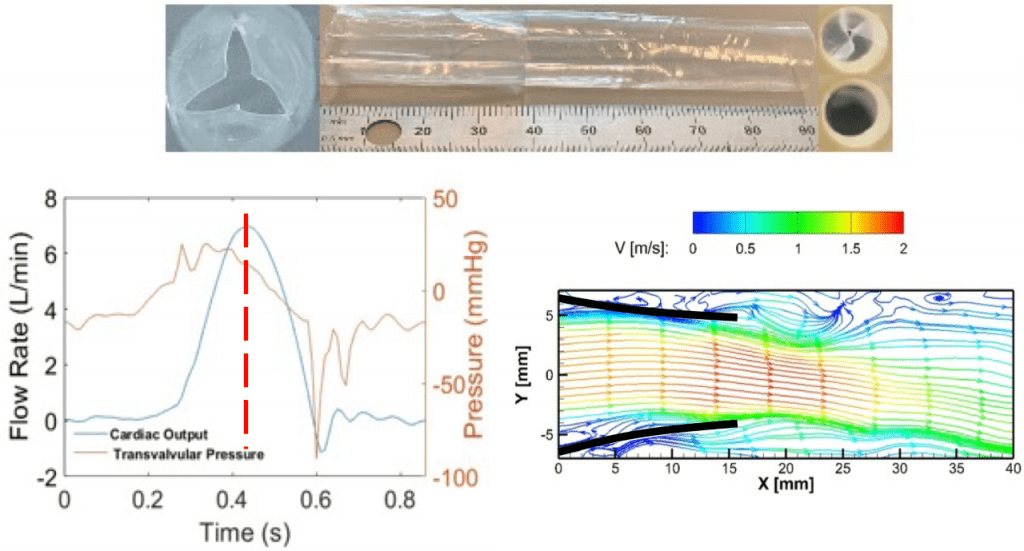Congenital heart defects (CHD) are among the most common birth defects in the United States and a leading contributor to infant mortality rates across the globe. Right ventricular outflow tract (RVOT) anomalies are present in 15-20% of CHDs, such as pulmonary atresia, Tetralogy of Fallot and truncus arteriosus. A right ventricle to pulmonary artery (RV-PA) conduit is often used in surgical procedures for RVOT reconstruction, to restore the pulmonary blood flow from the heart. Currently available conduit options include homografts, decellularized allografts, commercial xenografts and polymeric grafts. The challenges with these existing conduits include thrombus formation, calcification, stenosis, regurgitation and sternal compression, which affects the device’s hemodynamic performance and longevity, leading to surgical reintervention.
The objective of this study is to develop a novel biocompatible polymeric RV-PA valved conduit having excellent hemodynamic and fatigue characteristics to address many of the drawbacks of the available options.
